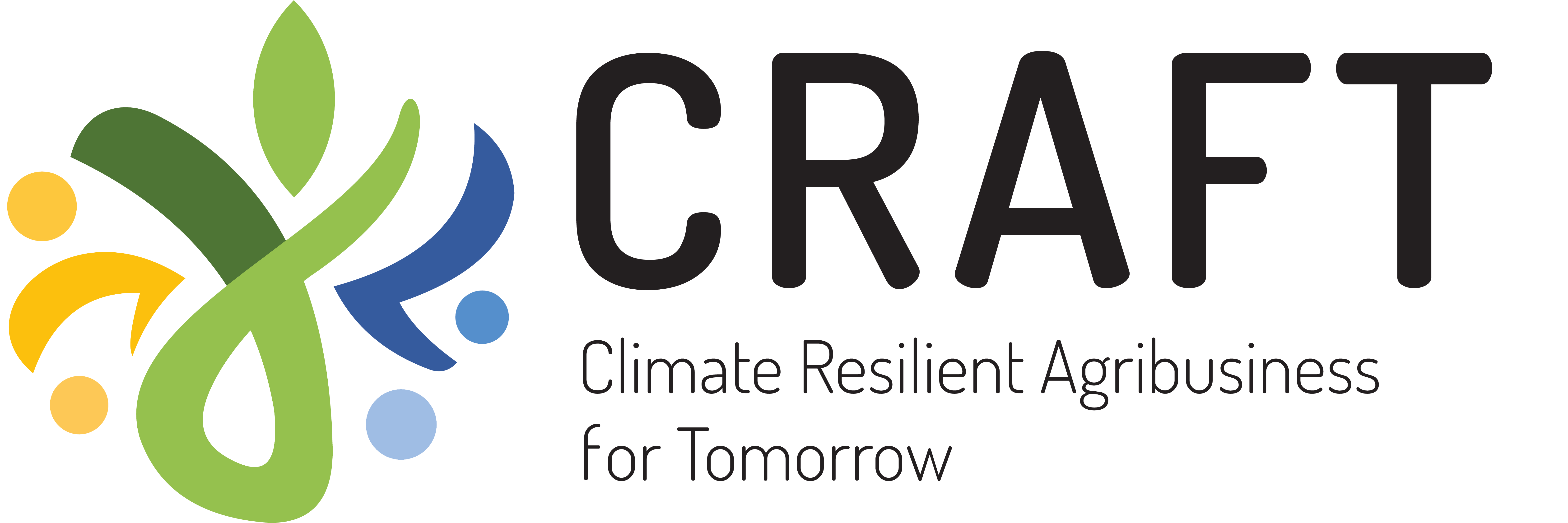To address these challenges, SNV, in partnership with Agriterra, ILRI, Wageningen University, and Rabo Partnerships, is implementing the Climate Resilient Agribusiness for Tomorrow (CRAFT) project in Kenya, Tanzania, and Uganda. One of the project's aims is to increase the inclusion of women and youth in various value chains, advocate for their inclusion in decision-making levels, and empower them to adopt sustainable practices and improve their livelihoods using digital technologies.
Access to information
Access to information is critical for women to adopt climate smart-agricultural practices. However, due to time constraints and cultural and socio-economic factors, women are still a step behind in terms of accessing information and implementing smart agricultural practices such as weather forecasting, soil testing, and crop selection.
According to a study in Tanzania by Peter Siyao, the lack of access to current, relevant and appropriate agricultural information in rural areas where the study took place has led to the stagnation of growth of sugar cane produced by small-scale growers. It also revealed that the barriers to accessing agricultural information in the study area are associated with the lack of means and facilities by which information can be easily accessed.
To address this issue, CRAFT is partnering with meteorological institutions in Kenya, Tanzania, and Uganda to share weather and climate information through SMS. This intervention has proven successful, with over 14,000 women in Tanzania benefiting from weather information since 2018. For example, Mwajuma Salumu, a sunflower grower in Tanzania, has been receiving weather information messages through her mobile phone, enabling her to carryout her farming activities, including planting and pesticide application.
‘I normally receive weather information through SMS messages on my mobile phone. This has been helpful not only to the sunflower value chain implemented by the CRAFT project but also, I have been using this information to decide on other crops I plant’, says Mwajuma.

Access to Finance
Financing is a critical barrier for smallholder farmers, especially women. According to the Global Women in Agriculture paper, 36% of women say they have less access to financing than men. One of the contributing factors is that fewer women are landowners. In fact, according to the Tanzania Bureau of Statistics figures from 2018, only 9% of women are landowners.
As Aziza Ramadhani, another sunflower grower in Tanzania explains, ‘in our society, the land is owned by men, which means that we have limited access to our own land for farming.’ This has a direct impact on women’s capacity to access financial and credit facilities and therefore hinders their adoption of climate-smart agricultural practices as many of them require significant financial investments. Grace Sanga, a potato farmer in Tanzania, faced a similar challenge with accessing financing. Without access to credit, she struggled to invest in her farm and expand her business.
To address this issue, CRAFT partnered with East Africa Foods Limited, to help women farmers like Grace and Aziza connect with financial institutions and access credit. This intervention enabled Grace to open a bank account, and access credit and other financial services that she could use to invest in her farm and increase her yields.
Additionally, digital technologies have helped Grace and other women access market information, including real-time crop prices, and connect with buyers through mobile apps and online platforms, increasing their income and improving their livelihoods.
Digital technologies have the potential to overcome many of the barriers that women farmers face in agriculture, providing them with access to information, financial resources, and markets. As the world works towards building more sustainable and resilient food systems, it is essential to include and empower women farmers to play their critical role in feeding the world. The CRAFT project serves as an excellent example of how partnerships and digital technologies can empower women and promote gender equality in the agricultural sector.
Written by Sophia Cyril Kessy, Maxine Kampire, and Benjamin Gerald.










